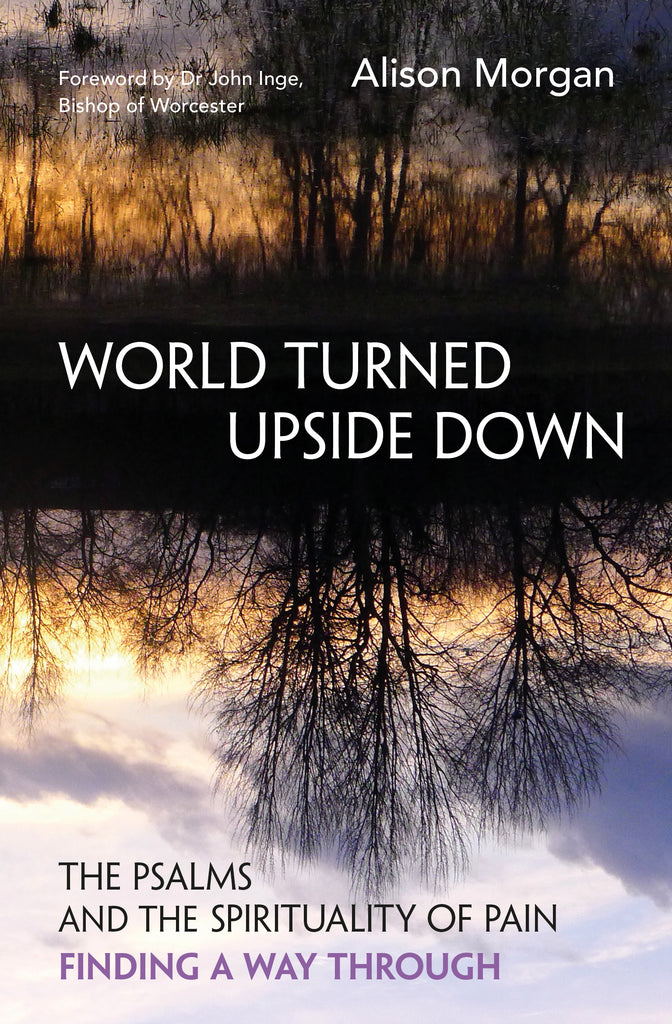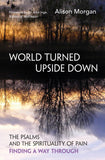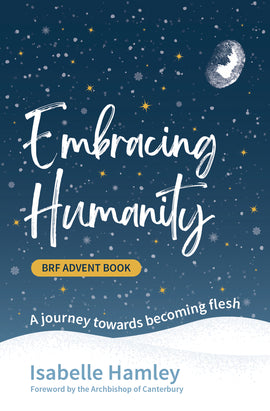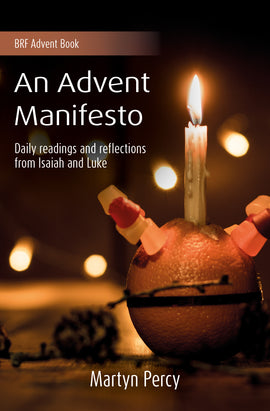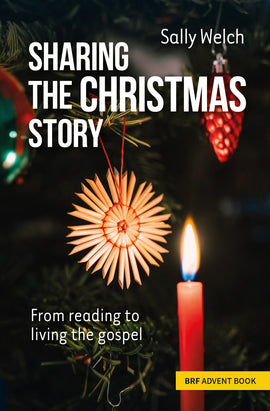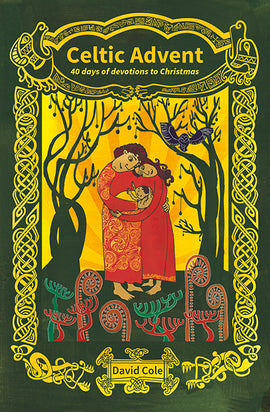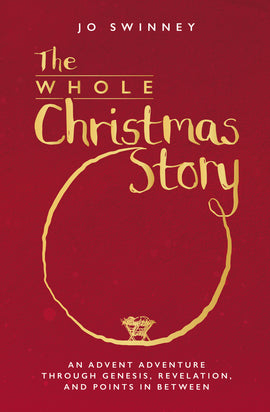World Turned Upside Down
A thematic exploration of the Psalms, bringing insight and solace to those who are finding life complex and painful
There are no simple answers to life’s challenges, so how do we integrate our most testing experiences into our faith in a way which strengthens rather than undermines it? When we are at our weakest, when we feel we most need God and yet have no idea how to talk to him, it is the Psalms which leap to our rescue.
| Title | World Turned Upside Down |
| Author | Alison Morgan |
| Description | There are no simple answers to life’s challenges, so how do we integrate our most testing experiences into our faith in a way which strengthens rather than undermines it? When we are at our weakest, when we feel we most need God and yet have no idea how to talk to him, it is the Psalms which leap to our rescue. With the psalmists as our guides, we learn to draw closer to God, to hear his voice in fresh ways, and to identify what it is that troubles us. Borrowing their words, we find that we are able to articulate our most painful feelings and walk through suffering with honesty, hope, and confidence in the God who travels beside us. Here is an opportunity to read the Psalms differently: an invitation to embark on a new journey. |
| Details |
|
There are no simple answers to life’s challenges, so how do we integrate our most testing experiences into our faith in a way which strengthens rather than undermines it? When we are at our weakest, when we feel we most need God and yet have no idea how to talk to him, it is the Psalms which leap to our rescue.
With the psalmists as our guides, we learn to draw closer to God, to hear his voice in fresh ways, and to identify what it is that troubles us. Borrowing their words, we find that we are able to articulate our most painful feelings and walk through suffering with honesty, hope, and confidence in the God who travels beside us. Here is an opportunity to read the Psalms differently: an invitation to embark on a new journey.

Revd Dr Alison Morgan has written widely on literature, theology and the Christian life. She is an Associate of the Mathetes Trust, where she oversees the Rooted in Jesus discipleship programme for Africa, now in use in 19 countries. Alison has a PhD from Cambridge for her work on the Italian poet Dante, and in her spare time enjoys birdwatching, walking and photography.
‘The Psalms take us on a journey; and they take us on foot… in a sense walking is the dominant theme of the entire Psalter.’ So writes Alison Morgan in her highly perceptive, reflective and personal exploration of this great repository of timeless wisdom. Alison is the ideal walking companion and guide, walking not racing, never charging on ahead, always taking time to stop, to absorb the view and to ponder. She shares her personal experiences – of pregnancy, of rejection, of confusion, of bereavement, of times when her world has been turned upside down – in such a gentle manner as to invite the reader to call to mind the highs and lows they have similarly experienced, endured or enjoyed. As well as being intimately familiar with the landmarks, Alison is the kind of guide who inspires confidence: she has trodden this path before, she reads the map, she knows the direction, she is not daunted by difficult terrain, scree or scramble, not held back by headwind, storm or fog.
At each stage, Alison’s method is to draw attention to a particular fea- ture of the Psalmist’s landscape, then, as readers and author together rest their gaze on that aspect, readers come to see how the Psalmist’s hard-won insights into the human condition can be a source of under- standing, perseverance, faith, and hope in their own lives. In the process they come to know themselves more fully; they also come to know God more fully, the God who has ‘searched me out and known me’. The best guides, of course, do more than show people the way; they also enable them to find their own way. Anyone who follows Alison’s guidance will be better equipped to return to the Psalms again and again and discover fresh insights of their own – and become a guide to others.
From the very outset of this book, it becomes clear to the reader that this walk is not an amiable, aimless ramble. Rather, the journey on which Alison is the guide is a pilgrimage; indeed, as she points out, several psalms were themselves composed to accompany the pilgrim. As a disciple of the one who called himself the Way, the Truth and the Life, Alison discerns the presence of Jesus every step of the way. What Alison offers the reader here is a camino through the Psalms. It is telling that the heading of the final chapter is ‘Coming home’.
I hope you will enjoy your pilgrim walk with Alison, that you will marvel at the beauty along the way, and marvel even more at the Creator, Redeemer and Sustainer of it all; I wish you a rewarding journey and a safe homecoming.
Dr John Inge, Bishop of Worcester
As ever, Alison Morgan manages to convey a wealth of academic study in a deeply personal and accessible way. In this hope-filled book she applies the Psalms to the reality of every-day life and shows how they can help us express our own thoughts and feelings to God as well as listen to his response. Along the way she tackles issues such as meaning, lament, identity – and especially pain which, like fire, can ‘burn or refine’. In her own poetic language she illustrates the poetry of the psalms which ‘demands to be felt more than thought about’ and expresses what it feels like to be human. ‘World Turned Upside Down’ is practical as well as inspirational. It points to the way in which the Psalms can help us to grow through our suffering rather than be crushed by it, and includes moving and profound meditations on creation and death. This book is all about looking at life differently, and its message could hardly be more apt in today’s culture: namely that, however hard it may sometimes be to believe, ‘God is sovereign, and God is with us’.
Bishop James Newcome
‘Written with great insight and compassion, this deep dive into the Psalms is a much- needed book, at a time when suffering has come home to so many. Alison Morgan deftly explores the many ways in which the ancient poetry of the Psalms can speak into our own lives, so that we really understand what it means to say of these scrip- tures that “deep calls unto deep”.’
Malcolm Guite, poet and life fellow of Girton College, Cambridge
‘This book is stunningly beautiful: as filled with light and shadow, and with energy and life, as the Psalms that form its subject and have power – so Alison Morgan argues – to turn things on their heads. But this is a book that is also felt. Alison “sees and sings” these ancient biblical songs, by mapping them onto the here and now of her own and others’ lived experience – and she does so with a visceral intensity, that invigorates the senses and discovers meaning in the sights, sounds and textures of places. This is a remarkable book, that brings memory, experience and theology into play with literature, art, music and even neuroscience, and does so with the lightest of touch and the sharpest of wit. It will surely inspire even those who have known the Psalms all their lives, as well as those for whom they are new or less familiar.’
Professor Clare A.P. Willsdon, History of Art, School of Culture and Creative Arts, University of Glasgow
‘I found my journey through the Psalms with Alison Morgan eye-opening, encouraging and challenging. It was as though God was inviting me into a deeper level of com- munication and intimacy with him as Alison shared her reflections. She has given me tools and a desire to engage with the Psalms, and the God of the Psalms, more deeply and honestly.’
Bishop Martin Breytenbach, retired bishop of St Mark the Evangelist, Limpopo, South Africa
‘There is so much to enjoy throughout the book. Each chapter offers a stimulating breadth of literature, history, geography and natural sciences easily woven into the narrative. Many engaging stories illumine the text and demonstrate what may be involved in real, visceral engagement with God. There is a catholicity of scholarly perspectives deftly presented without being showy or obtrusive. Alison’s style is lucid and lyrical with occasional iridescence. There is evidence of substantial pastoral experience supporting people in different continents and cultures undergoing the common human condition of fiercely personal trials. This leads to realism in facing personal pain and the unreasonable reactions from others that can be so shocking in life’s adverse episodes.’
Rodney Green CBE, former chief executive, Leicester City Council, and author of 90,000 Hours: Managing the world of work
‘This book is an excellent companion as you walk through the ups and downs of everyday life. It is a gentle yet deep reflection on personal and sometimes challenging experiences that can only strengthen and deepen one’s faith in God. Alison’s inter- cultural writing style will draw you in, whatever your cultural heritage or ethnicity. Her insights during this personal adventure through the Psalms will keep you engaged and genuinely bless you. In this book, you will find something which is critically rigorous, helpfully informative and personally meaningful and that you can use as part of your pattern of prayer. I wholeheartedly commend it to you.’
Rt Revd Dr Timothy Wambunya, honorary assistant bishop in the Diocese of Oxford and former bishop of Butere in Kenya
‘This is a deeply personal book in which the author explores how the Psalms, in all their shades of light and dark, have illuminated and given shape to her own journey of faith. A most engaging read, vividly written.’
Canon Patrick Woodhouse, former canon of Wells Cathedral and author of Life in the Psalms
‘Alison does not shrink either from the difficulties we face in life nor from the so-called difficult parts of the Psalms. Indeed she brings these two together, first by talking openly about the bad things that happen, some of them from her own life story, and then by using the words of the Psalms themselves to face, express and reassess our experience. A particular delight was reading Alison’s appreciation of the richness of the natural world, represented in the Psalms, illustrating their word pictures with her own examples full of awe and wonder.’
Revd Dr Liz Hoare, tutor in spiritual formation, Wycliffe Hall, Oxford
‘Like the Psalms themselves, Alison’s book is refreshingly honest and abounds in insights from her extensive general knowledge and life experience. That makes it a very rich read. Alison draws the reader into their own journey of reflection on what it feels like to be human, with an understanding that we can only truly find ourselves as we discover God in all his multifaceted layers. I found this book immediately engaging, totally absorbing and ultimately healing and restorative.’
Canon Andrew Evans, rector of Broughton Gifford, Great Chalfield and Holt, and rural dean of Bradford, Diocese of Salisbury
‘A book focused on pain could be a daunting prospect – and this one does make demands, inviting us to engage emotionally with our experience as well as in our thinking. But it does so with a lightness of touch, bringing numerous stories from personal experience, laced with wise reflection and playful humour. In all this the Psalms provide lenses through which to explore life’s hardest times and also words through which to express them. Inhabiting these ancient songs really can help turn our world the right way up.’
Revd Dr Bill Goodman, assistant principal at St Peter’s College and director of ongoing ministerial development, Diocese of Sheffield
Transforming Ministry September 2023. Review by Cavan Wood
This is a powerful book which enables us to see the Psalms in all their glory. Alison Morgan has written a guide to the hymns of Israel that helps us to see their eternal relevance. They include making sense of life, dealing with pain, personal identity and the honesty we need to face suffering. Using her own experience and some powerful connecting analogies, the author helps us to see that we need a spirituality that is totally honest so that we might have a right relationship with God. Drawing on the work of Walter Brueggemann and others, she helps us to see how the Psalms can be about dislocation, feeling away from God – yet the very naming of our sins, doubts and fears is the way to help them lose their power as we can bring them to God. There is a great deal for a reader or preacher to learn from here – it can help us to develop an approach to pain and suffering which is both biblical and human.
Reviewed by Cavan Wood

